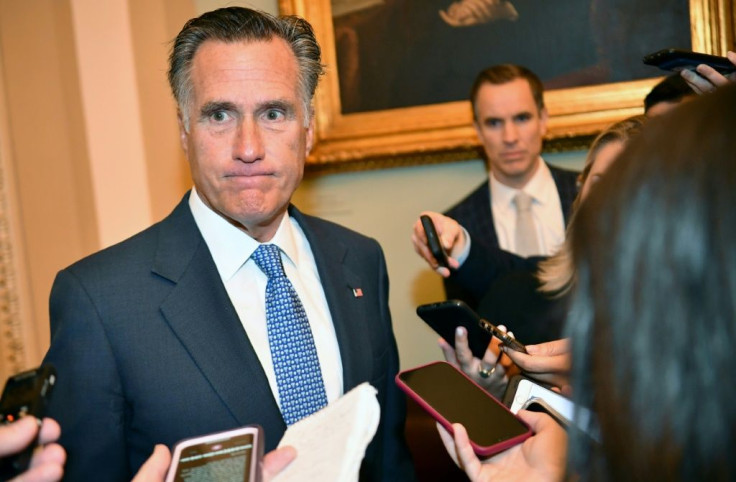US Chamber Of Commerce Urges Congress To Suspend Payroll Taxes, Take Other Actions To Combat Coronavirus

KEY POINTS
- Chamber suggests suspending payroll taxes for three months, making Small Business Administration disaster loans available and developing credit facilities for big businesses
- The Senate takes up House passed coronavirus aid package Monday
- At least 4,000 Americans have been infected by coronavirus with about five dozen deaths
The U.S. Chamber of Commerce on Monday advised President Trump, House Speaker Nancy Pelosi and Senate Majority Leader Mitch McConnell to suspend payroll taxes, streamline loan programs for small businesses and create credit facilities for big businesses to ease the economic effects of the coronavirus.
The suggestion came as Sen. Mitt Romney, R-Utah, suggested giving $1,000 to every American adult, and former Democratic presidential hopeful Andrew Yang, who advocates for universal basic income, urged the government to get its act together and put money into people’s hands.
In a letter to Trump, Pelosi and McConnell, the chamber CEO Tom Donohue urged cancellation of payroll taxes paid by both employers and employees for March, April and May to “reduce the cost for employers for continuing to pay employees regardless of whether they are working or on sick leave.”
He also suggested using the Small Business Administration’s disaster loan program to help employers with fewer than 501 employees immediately and recommended the government work with banks to free up cash for large employers.
“Taken together, these three steps, in addition to the other actions outlined in the appendix to this letter, will ensure that businesses of all sizes and across all sectors have increased liquidity and access to necessary financing to help them weather the temporary loss in revenue caused by the coronavirus,” Donohue wrote, adding that the chamber views the impact of the virus as temporary and predicts investment that currently is being deferred will take place once the pandemic subsides.
“It is critical at this moment that the federal government assists individuals, families and businesses as they traverse this period of lost income,” Donohue wrote. He said no family or business should be forced into bankruptcy because of the virus, which has infected at least 4,000 Americans, resulting in about five dozen deaths.
The House on Friday overwhelmingly approved a measure that provides for paid sick leave, bolsters unemployment insurance and enables free testing for the virus. The Senate was to take up the bill Monday as negotiations for more comprehensive action continue. A second House-passed bill is getting a cooler reception, with senators worrying it doesn’t go far enough.
“Senate Republicans feel strongly that this bill must only be the beginning of Congress’s efforts to support our nation’s economy and stand with American families,” McConnell said.
Romney said the House bills are good as far as they go, but much more is necessary to mitigate the impact of the virus. He proposed giving every adult $1,000, mirroring what Congress did in the 2001 and 2008 recessions.
“While expansions of paid leave, unemployment insurance, and SNAP benefits are crucial, the check will help fill the gaps for Americans that may not quickly navigate different government options," Romney's office said.
“No one thinks that what Congress is doing is sufficient to prevent a deep recession or worse. Congress needs to think much bigger about what is happening here. This is an economic blackout for an extended period of time on a society-wide scale. Wider than 2008,” Yang tweeted Monday.
He said the extent of the impact won’t be apparent for weeks.
“Think about the situations millions of families on the financial precipice will be in at each point in time unless something big is done,” he urged, calling on the government to take swift action.
What exactly is the political downside of putting money into people’s hands? Get your shit together Congress and do the right thing.
— Andrew Yang🧢⬆️🇺🇸 (@AndrewYang) March 16, 2020
© Copyright IBTimes 2024. All rights reserved.





















